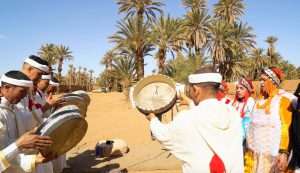Morocco: Jazz Festival sweeps Tangiers

Tangiers – a city historically renowned for inspiring American jazz musicians – hosted UNESCO’s International Jazz Day for the first time.
From 27th – 30th April, international jazz legends took to the stage to celebrate Tangier’s jazz heritage, whilst highlighting the artistic ties between musicians from 190 countries around the world, AFP reported.
Herbie Hancock, John Beasley, Dee Dee Bridgewater, Magnus Lindgren and Richard Bona are some of the few jazz sensations to attend the festival.
The emphasis on promoting “peace, cultural dialogues, diversity and respect for human dignity” was cemented by a series of education programmes that were attended by students of all ages.
READ: Tangiers prepares to host International Jazz Day
Known as a melting pot of cultural expression, Tangiers is home to the Gnawa music – a well-preserved traditional Moroccan style – the very music that inspired numerous jazz festivals throughout Africa.
The African Jazz Festival was founded by jazz master Randy Weston, circa 1970s after his collaboration with Gnawa master Abdellah El Gourd, where they explored the roots of jazz and African music.
Weston’s festival uncovered a market for other organised jazz celebrations throughout Morocco, such as Jazzablanca and Tanjazz.
In 2011, UNESCO collaborated with the UN to recognise the 30th April as the annual International Jazz Day.
Although the jazz festival was rumoured a success, the city is beginning to struggle with a lack of water security.
Just two days before the jazz festival’s kick-off, the African Development Bank Group published an article highlighting the rapidly increasing effects of climate change and the threatened water security.
While Tangiers remains in a better situation the those struggling with drought in other Moroccan cities, the city’s meteorological profile has been affected for decades, as temperatures rise and rainfall decreases the access to water reduces.
As the Tangiers economy expands, so does the need for water in order to support the multiple new industries in the region.
AFP/UNESCO
Want to chase the pulse of North Africa?
Subscribe to receive our FREE weekly PDF magazine














